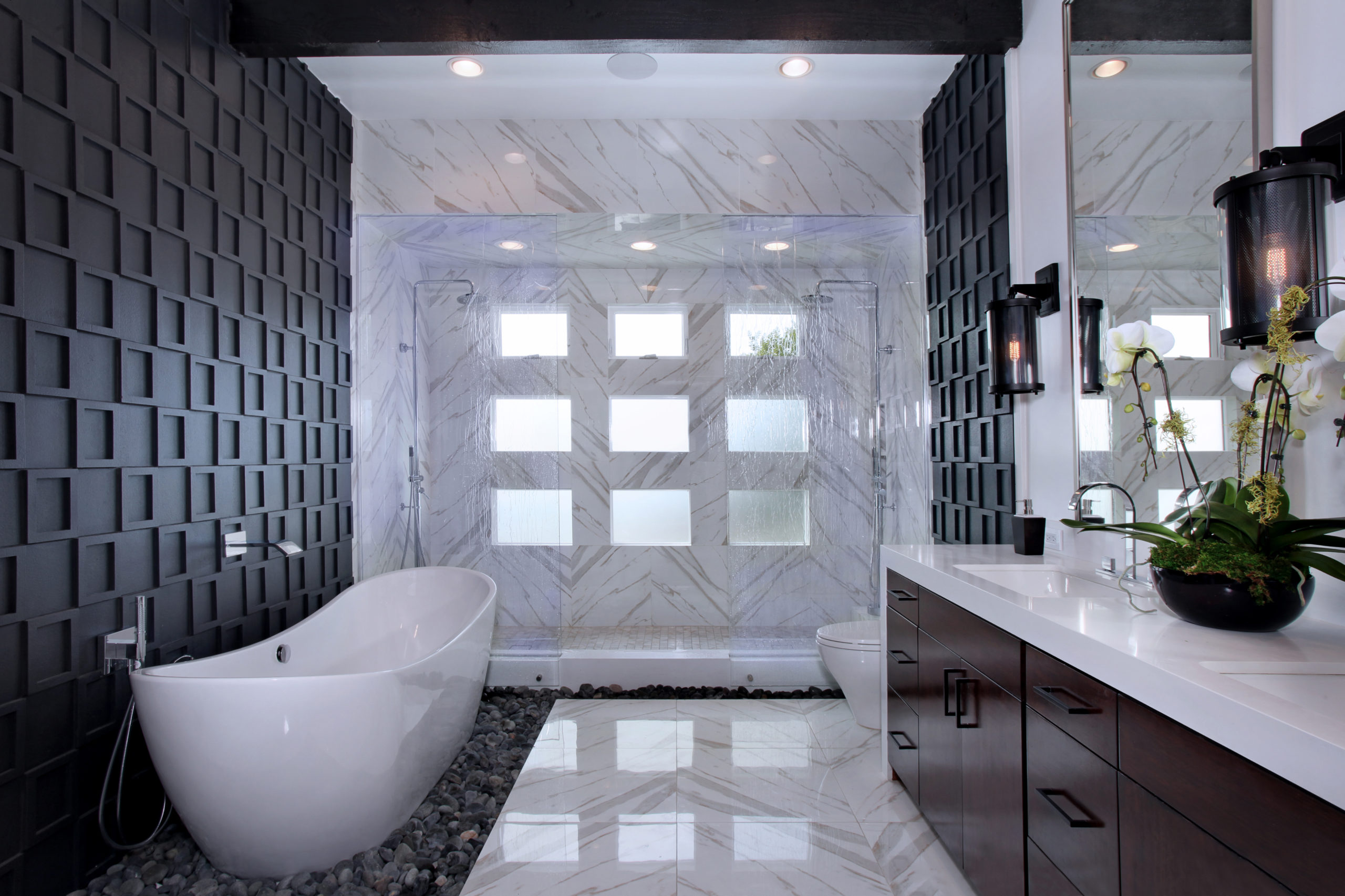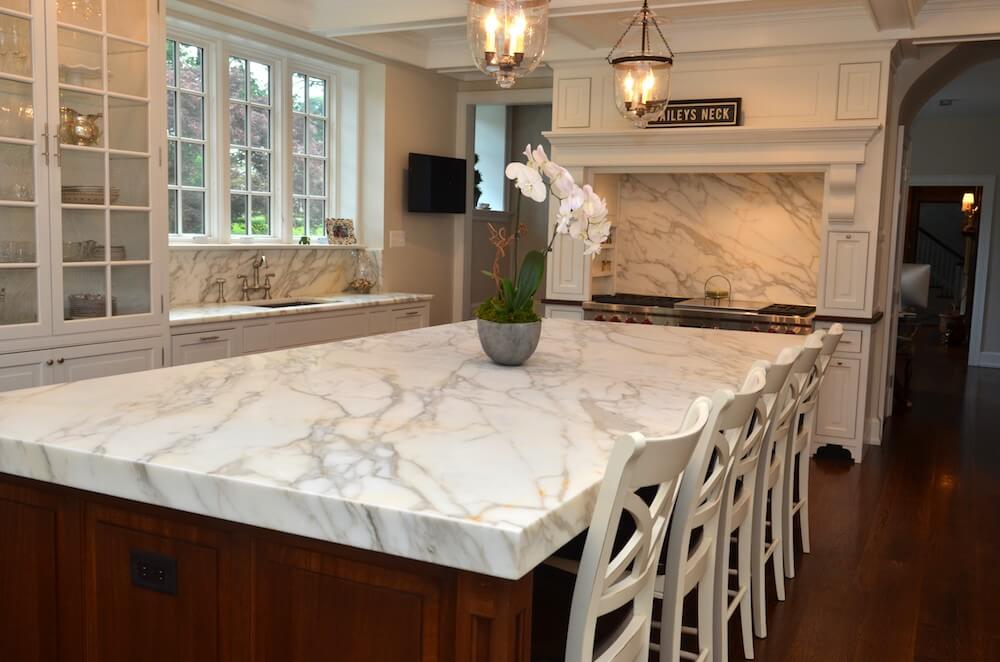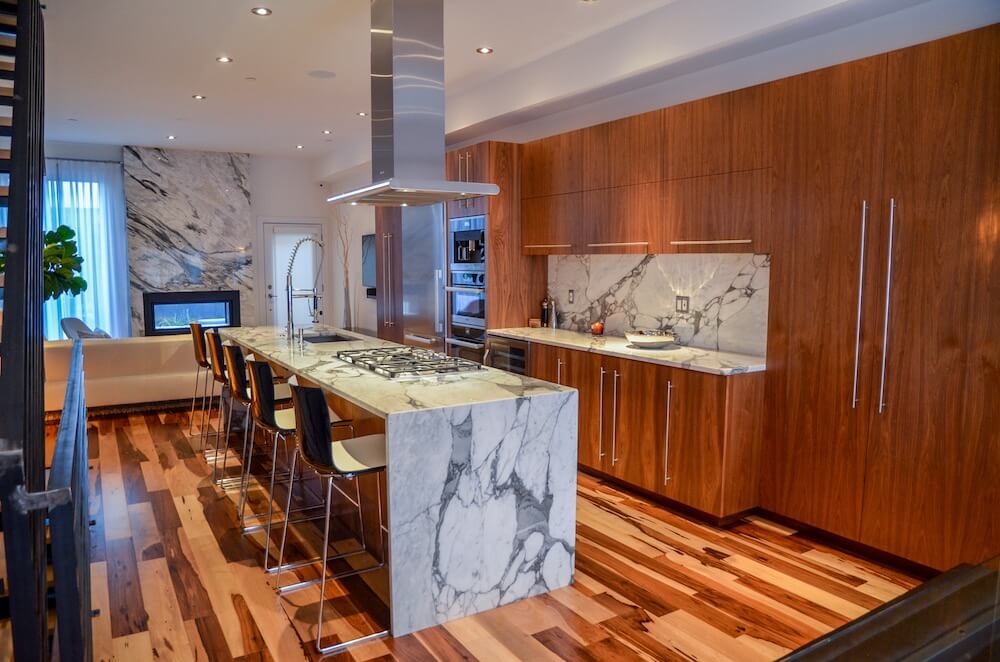We all know that aside from its unmatched beauty and singular uniqueness, granite countertops are among the most durable and sturdy surfaces, especially when it comes to natural stones. Combining the liquid magma of violent volcanic eruptions from millions of years ago with the unrelenting elements of pressure, heat, and time, granite countertops are incredibly strong and long-lasting, exhibiting resistance to cracks, deterioration, and other wear and tear.
However, for all its strength and imperviousness, you want to ensure your granite countertop is properly maintained to avoid issues with its finish. While it is not as porous as other stones, granite is still susceptible to staining unless sufficiently sealed. The good news is that removing hard water stains is fairly simple. But before we get into how to clean water stains from granite, let’s first take a look at exactly how it happens.
Can Granite Be Stained?
First off, let’s address a common misconception — can granite actually be stained? While granite is a notoriously hard stone and renowned for its resistance to damage, it can indeed be stained; in fact, all natural stones can be stained if not properly cared for. However, most water stains on your granite countertop will only be temporary — if you act quickly and take the right steps.
What Causes Water Staining On Granite?
It’s important to understand there are two different types of water stains on your granite countertop: simple stains and hard water stains. Simple water stains typically occur from condensation and be easily wiped away with a microfiber cloth; hard water stains on granite are more nefarious — they contain minerals like calcium, magnesium, and other elements that can react with soap and mar your countertop over time. You’ve probably seen this filmy buildup and residue around your faucet or other fixtures. These unsightly deposits can turn into a scaly mineral accretion that dulls the look of your granite countertops.
How Do I Keep My Granite Countertop Clean?
Keeping your granite countertop clean rarely requires more than simply using a microfiber cloth to remove dust or wiping away crumbs or spills with plain water and mild dish soap. One thing you never want to do is use an abrasive cleaner, harsh chemical, or vinegar for hard water stains on granite; these can erode the sealant that helps to protect your granite countertop’s surface.
Cleaning Hard Water Stains From Granite
If you need to clean hard water stains from your granite countertop, follow these steps:
1. Wipe up all spills immediately
Use a sponge or cloth to clean and rinse away any spills
2. Treat hard water spots ASAP
Treat hard water stains from your granite countertop as soon as you notice them. Spots or rings left by wet dishes should be removed quickly to avoid them leaving behind scaly, hard deposits.
3. Make a paste
If the hard water buildup solidified into scales, create a paste of baking soda and water. Apply it to the affected area and gently scrub with a soft-bristled brush, then rinse with water and a microfiber cloth.
4. Make a poultice
This can be used in cases where the stain has sunk a bit deeper into the surface. Use the same baking soda and water mixture and apply it generously to the stain. Then, cover it with plastic and tape down the edges. After 24 hours, remove the plastic and wipe the poultice away; reapply as needed.
5. Use a razor blade (carefully!)
For stubborn spots, you can use a single-edge razor blade to clean hard water stains from your granite countertop. This should be your last resort, so be careful not to cut into the sealant when scraping away mineral deposits from the surface.
How Do I Prevent Water Stains On Granite?
Now that you know how to clean water stains from your granite countertop, it’s just as critical to understand how to prevent them and protect your stone. One of the most effective ways to prevent water stains on your granite countertop is to seal the surface. Applying a sealant will fill the pores of the stone and stop stains from penetrating the surface, allowing them to be wiped away quickly and easily. While particular types of granite will require different resealing timeframes, it’s crucial to maintain your countertop’s surface. We recommend Granite Gold Sealer to keep your countertop looking its best.
How Do I Know When It’s Time to Reseal My Granite Countertop?
If you’re wondering when’s the best time to reseal your granite countertop, you can perform a water test. Pour a small amount of water onto various sections of your granite countertop and let it sit for 30 minutes. Observe any changes that take place during this time; if the granite darkens quickly before the time is up, it likely means it’s time to reseal. Applying a coat of granite sealant will help protect it from stains and dullness.
Stay Ahead of Water Stains On Your Granite Countertop With a Quality Installation
Investing in a quality installation is the best way to avoid water stains on your granite countertop. At Colonial Marble & Granite, we specialize in granite kitchen countertops and will ensure yours is installed with precision to prevent complications associated with improperly-sealed stone surfaces. You will be able to enjoy the stone’s eye-catching design of swirls and specks for years to come without worrying about stains leaving a permanent mark.
Explore our showrooms and slab yards today to find the perfect countertop to add elegance and luxury to your kitchen. And don’t hesitate to reach out to our specialists after your countertop installation for more tips on how to clean water stains from your granite surfaces and other helpful advice.





